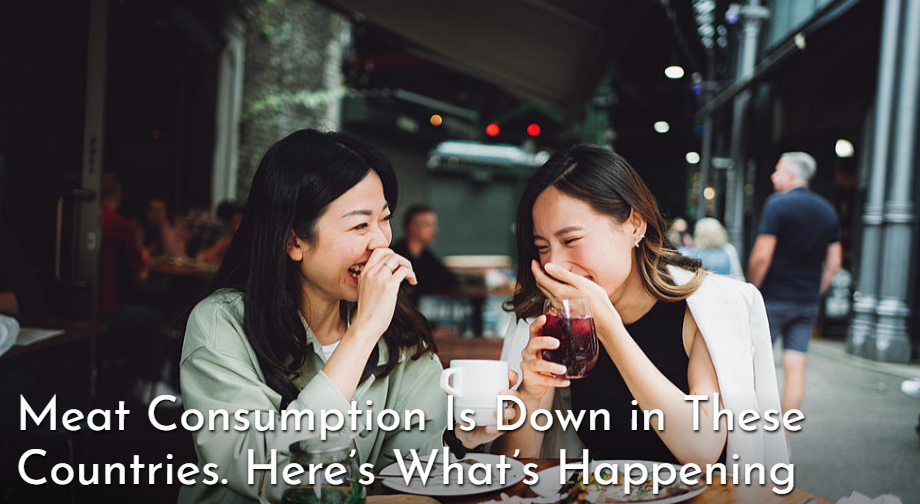As climate change continues to become an even bigger cause for concern among savvy consumers who are linking their purchase choices at the store to contributions of CO2 and other greenhouse gases, the meat and dairy industries are finding themselves in the line of fire, since animal agriculture accounts for about one-third of all greenhouse gases produced by food production.
That spells trouble for meat producers and dairy makers alike since consumers in several countries are increasingly turning away from buying meat and dairy products and looking for more planet-friendly options, a new report finds.
Meat and Dairy Sales Are Declining Across Europe
About 55 percent of consumers today consider the sustainability of their food choices while grocery shopping. The trend of health-conscious and eco-minded consumers is rising all over the globe, and a new survey revealed that meat consumption is significantly declining among consumers across Western Europe.
The survey, commissioned by the Good Food Institute Europe, found that over 50 percent of consumers in Germany, Italy, Spain, and France have lowered their meat consumption within the last five years. As plant-based meat alternatives become more accessible in Europe, consumers have the option to choose a healthier, more environmentally sustainable option at the grocery store.
“It’s great to see plant-based meat become so strongly established in many people’s diets across Europe,” Carlotte Lucas, Corporate Engagement Manager at the Good Food Institute Europe, said. “Companies now need to capitalize on this interest and invest in developing products that can truly compete with conventional meat on taste and price to provide the sustainable options Europeans want.”
The Good Food Institute Europe worked with OpionionWay to question 4,096 consumers across the four countries to understand emerging trends and purchasing habits regarding meat products. The survey found that over 60 percent of respondents felt that alternatives to animal-based meat and dairy products should be available in stores.

Europeans Are Dropping Meat and Dairy Products
The survey also discovered that more than half of all respondents felt that alternatives to animal meat must be found. When asked “Do you agree that alternatives to the production and consumption of animal meat must be found?” 71 percent of Italian respondents, 66 percent of Spanish respondents, and 60 percent of French and German respondents replied yes.
Consumers in Europe are also open to more sustainable alternatives than just plant-based proteins. The survey shows that 57 percent of Germans, 33 percent of French, 55 percent of Italians, and 65 percent of Spanish consumers revealed they are open to purchasing cultivated meat when the products become commercially available in Europe. The survey notes that younger people felt more inclined to try cultured meat in the future.
Among younger generations, plant-based or plant-centric eating is increasingly popular. Last year, another survey found that 54 percent of millennials are eating more plant-based, identifying as “flexitarians.” The study noted that health was the main driver for the respondents looking to introduce more plant-based foods.
This new data accompanies a previous survey that found that 46 percent of respondents in Austria, Denmark, France, Germany, Italy, the Netherlands, Poland, Romania, Spain, and the UK have lessened their meat consumption.
Food as a Solution for Climate Change
Approximately 85 percent of the world’s population is experiencing the effects of climate change now. With record-breaking monsoon rains, relentless heat waves, and prolonged droughts, research has highlighted how the animal agricultural industry is fueling environmental disasters. This month, UN Secretary-General António Guterres warned of climate “disaster” ahead of the United Nations’ COP climate change conference.
Nearly 40 percent of methane emissions worldwide can be attributed to cattle production. UN researchers have claimed that the world must cut methane emissions by 33 percent by 2030, placing the responsibility on the meat and dairy industries. This year, the UN will host its first food-centric climate event with the help of ProVeg International. The Food4Climate Pavilion aims to educate guests on how to protect the planet beginning with food production and plant-based reform.
Article Credits: The Beet